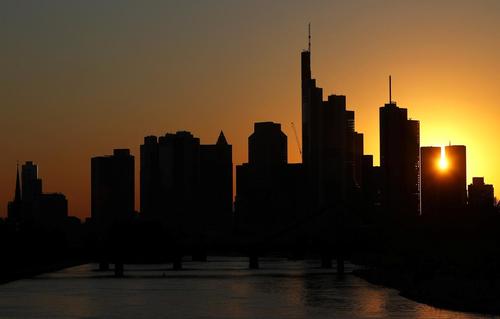by TYLER DURDEN
One decade ago, in the aftermath of the Fukushima disaster, Germany’s Angela Merkel announced that the country would permanently shut down eight of its 17 reactors and pledged to close the rest by the end of 2022. Ten years later, crippled by the worst energy crisis in European history, and forced to comply with Russia’s demands unless it is prepared to freeze this winter as a result of stratospheric nat gas prices, the time has come to pay the piper.
On Wednesday morning, the German government cut its growth forecast for this year by 25% from 3.5% to 2.6% as crushing energy costs and supply chain bottlenecks for semiconductors have pressured the recovery in Europe’s largest economy. Economy Minister Peter Altmaier said the economy remained robust despite the COVID-19 pandemic, but supply chain woes in manufacturing and a surge in energy prices were complicating the recovery.
“In view of the current supply bottlenecks and high energy prices worldwide, the hoped-for final spurt will not happen this year,” Altmaier said.
“In 2022, the economy will gain momentum significantly.”
The delayed recovery means that the German economy won’t reach its pre-crisis level this year, but likely at the beginning of 2022.
The revised government forecast for GDP growth compares with an April prediction for the economy to grow by 3.5% in 2021 and by 3.6% in 2022.
To make the GDP cut more palatable, Germany hiked its 2022 growth forecast from 3.6% to 4.1%, but of course few believe that since nobody – and certainly not economists – has any visibility into how 2022 will go.
Altmaier said automobile manufacturers are currently not able to build hundreds of thousands of cars due to a lack of semiconductors and other electronic components. To ease the supply problems, the government is ready to support the construction of local semiconductor factories with several billion euros, Altmaier said, adding that he was hopeful this would mobilize even higher investments by companies soon.
The widespread bottlenecks in production, coupled with unusually high demand, are leading to price increases, with the government expecting inflation to surge to 3% this year.
Still, similar to establishment types in the US, the German government is sticking to its assessment that most of the price increases will be temporary. Berlin sees consumer price inflation easing to 2.2% in 2022 and to 1.7% in 2023. Last year, national consumer price inflation stood at 0.5%.
Projecting hope, Altmaier said he saw a chance that the price rally on energy markets would end soon, adding that he did not expect any supply problems on gas markets during the winter months.






